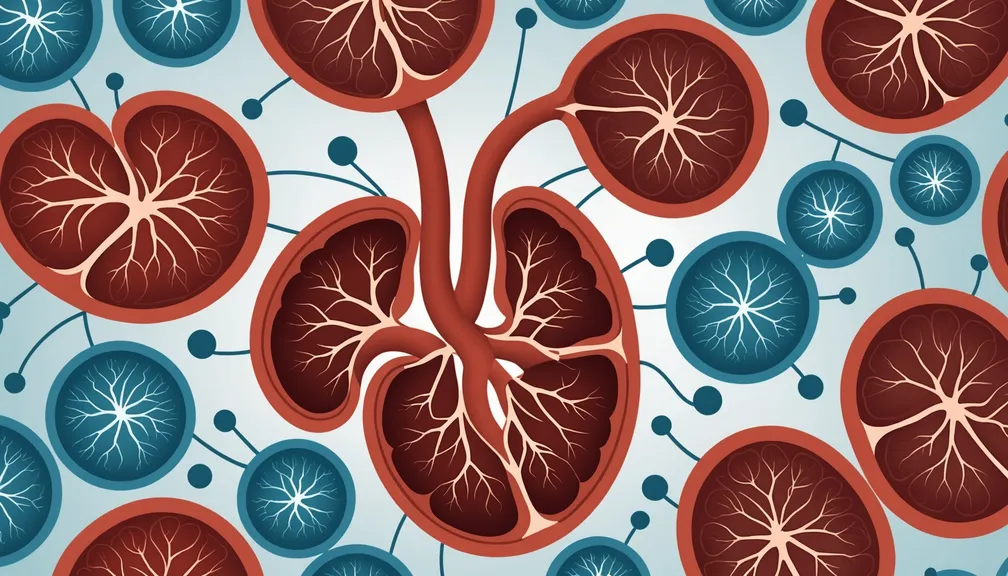Understanding Emotional Challenges
Living with a rare kidney disease can bring a range of emotions and psychological challenges. It's important to recognize and understand these feelings to better manage them.
- Feelings of Uncertainty: Not knowing what the future holds can be stressful.
- Fear and Anxiety: Concerns about kidney function, treatment outcomes, and overall health.
- Depression: Persistent sadness or loss of interest in activities once enjoyed.
- Isolation: Feeling alone due to the rarity of the condition and lack of understanding from others.
- Frustration and Anger: Dealing with the limitations imposed by the disease and its impact on daily life.
Coping Strategies
Developing effective coping mechanisms can help manage emotional stress related to rare kidney diseases.
- Mindfulness and Relaxation Techniques:
- Deep Breathing: Helps reduce immediate stress.
- Meditation: Promotes a sense of calm and focus.
-
Progressive Muscle Relaxation: Relieves physical tension.
-
Physical Activity:
- Gentle Exercises: Such as walking or yoga to boost mood.
-
Tailored Fitness Plans: Consult with a healthcare provider to determine safe activities.
-
Creative Outlets:
-
Art, Music, or Writing: Expressing feelings through creative means.
-
Structured Routine:
- Maintaining a daily schedule can provide a sense of normalcy and control.
Building a Support Network
Having a strong support system is crucial for emotional well-being.
- Family and Friends:
-
Share your feelings and experiences with trusted loved ones.
-
Support Groups:
-
Connect with others who are experiencing similar challenges.
-
Community Resources:
- Local organizations that offer support for individuals with chronic illnesses.
Communication Tips
Effective communication with healthcare providers and loved ones can enhance support and understanding.
- Express Your Needs:
-
Clearly communicate what support you require.
-
Ask Questions:
-
Don't hesitate to seek clarification on medical information or treatment options.
-
Active Listening:
-
Encourage open dialogue by listening attentively to others.
-
Set Boundaries:
- It's okay to limit discussions on certain topics if they cause distress.
Professional Support Options
Seeking help from mental health professionals can provide additional support.
- Psychologists and Therapists:
-
Offer counseling and strategies to manage emotions.
-
Psychiatrists:
-
Can provide medication management if needed for conditions like depression or anxiety.
-
Social Workers:
-
Assist with connecting to resources and navigating healthcare systems.
-
Counselors:
- Provide support for specific issues, such as grief or relationship challenges.
Self-Care Practices
Taking care of your emotional and physical health is essential.
- Healthy Lifestyle Choices:
-
Balanced diet, adequate sleep, and regular exercise contribute to overall well-being.
-
Hobbies and Interests:
-
Engaging in activities you enjoy can provide a sense of accomplishment and joy.
-
Mind-Body Practices:
-
Techniques like yoga or tai chi to promote mental and physical harmony.
-
Time for Rest:
- Allow yourself breaks and downtime to prevent burnout.
Managing Stress and Anxiety
Implementing strategies to handle stress can improve quality of life.
- Identify Stressors:
-
Recognize what triggers your stress and develop plans to address them.
-
Time Management:
-
Prioritize tasks and set realistic goals to reduce overwhelm.
-
Positive Thinking:
-
Focus on positive aspects and achievements to shift your mindset.
-
Breathing Exercises:
- Simple techniques to calm the nervous system during stressful moments.
Resources for Families and Caregivers
Supporting a loved one with a rare kidney disease can be challenging. Accessing resources can help caregivers manage their own well-being.
- Educational Materials:
-
Learn about the disease to better understand and support your loved one.
-
Support Groups for Caregivers:
-
Connect with others in similar situations for shared experiences and advice.
-
Professional Services:
-
Access respite care, counseling, and other services to support caregiver health.
-
Financial and Legal Assistance:
- Seek guidance on managing healthcare costs and understanding patients' rights.
Types of Healthcare Professionals to Consult
Collaborating with a team of specialized healthcare providers ensures comprehensive care.
- Nephrologist:
-
Specialist in kidney diseases, responsible for medical treatment and monitoring.
-
Psychologist or Psychiatrist:
-
Provide mental health support and treatment for emotional challenges.
-
Social Worker:
-
Assist with accessing resources, support services, and navigating healthcare systems.
-
Dietitian:
-
Offer nutritional guidance tailored to kidney health needs.
-
Nurse Practitioner:
-
Provide routine care, education, and support for managing the disease.
-
Physical Therapist:
-
Help maintain physical strength and manage mobility if needed.
-
Genetic Counselor:
- Offer insights into hereditary aspects of certain rare kidney diseases and family planning options.
Taking proactive steps to address emotional and psychological well-being can significantly enhance the quality of life for individuals with rare kidney diseases and their loved ones. Remember, seeking help and building a supportive network are key components of managing the emotional challenges associated with these conditions.






